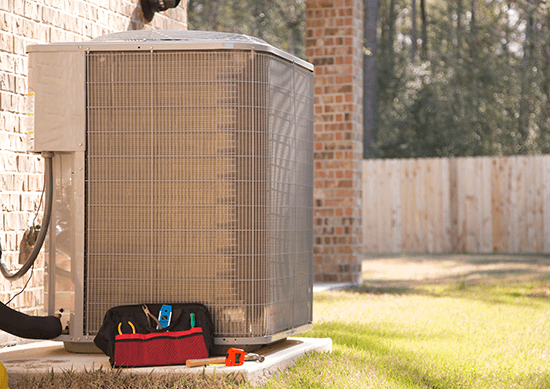
Humidity is an ever-present factor you need to consider and manage when maintaining your indoor air quality. In general, humidity refers to the amount of moisture in the air. Modern-day insulation has allowed families to create microclimates within their homes. These small, enclosed environments are easily affected by high-moisture activities that could lead to a muggy and uncomfortable living space. Here’s everything you need to know about achieving an ideal humidity level in your home.
Recommended Residential Humidity Level
On average, your home should have a humidity level between 30% and 60%. This range is so broad because some families with certain health concerns benefit from air with more moisture. You should also factor in the changing seasons when determining your ideal humidity.
Slight seasonal variations are also important because the amount of airborne moisture in your home can impact your energy bills. Air full of moisture tends to retain more heat than dry air. This can make it harder to cool your home if your moisture level is excessively high. Finding the perfect humidity range for your family’s health can have a dramatic impact on your comfort and monthly budget.
High Humidity Issues
Your home’s humidity level tends to skyrocket when water vapor is being created but has nowhere to go. Everyday activities create tons of moisture that then sits in your home for days. Cooking, washing your clothes, and drying them inside all massively influence your humidity level. Other smaller activities like doing housework, using your dishwasher, and sleeping can also impact your home’s overall comfort. There’s also the potential for issues like leaky pipes and flooding to bring too much moisture indoors.
Prolonged high humidity levels will impact the health of your household, making it harder to breathe, sleep and relax. You may experience coughing, sneezing, and other uncomfortable respiratory issues. Additionally, mold spores and dust mites thrive in warm, moist environments. A mold outbreak can start in your basement or bathroom and spread to your walls, carpets, paintings, and even clothing. Once the spores get into your ductwork, every room could be at risk. Breathing in fungal spores irritates your lungs, worsens your allergies, and leads to various diseases and cancers.
Low Humidity Issues
Dry air is typically less common than humid air. It can occur if you overuse your heating and cooling system or set your dehumidifier too low. Heating your home, for example, removes some of the airborne moisture. During the winter, there’s already very little water vapor available, resulting in air that’s too dry.
Very dry air will irritate your eyes, nasal passages, and skin. You’ll notice redness, cracked patches, and general dryness that doesn’t go away. Low indoor humidity levels can even cause unexpected nosebleeds. This uncomfortable environment will also dry out your wooden floors, wall paneling, and furniture. Your houseplants will lose vital moisture faster, making it harder to anticipate their watering needs.
Benefits of Dehumidifiers and Humidifiers
Humidifiers boost your humidity level by releasing steam into the air. They may improve your air quality, but they’re not purifying your breathing air or removing any contaminants. These systems can alleviate the symptoms of asthma, dry throat, allergies, and congestion. They’ll help your skin feel hydrated and refreshed while clearing your nasal passages.
Low-humidity climates dry out your mucus membrane, causing it to get thicker and obstruct your airways. Moist air alleviates your cold symptoms and limits the spread of certain viruses and bacteria. As long as your humidifier is regularly cleaned and serviced, you can use it all year long to protect your humidity level.
Dehumidifiers use cooled coils to pull moisture from the air and collect it in an internal reservoir. These systems lower your risk of pests, mold, dust mites, and mildew. You’ll have an easier time keeping insects like spiders, ants, and cockroaches out of the home. A dehumidifier will reduce your energy costs while protecting your belongings from developing unpleasant, musty odors.
Excellent Heating and Cooling Company
Heatwave Heating & Cooling is ready to deliver technical expertise and exceptional customer service in Amherst, NY. Our NATE-certified technicians are highly-trained, friendly, and responsive to your needs. We’ve provided premium Trane products since 2005 and have since become a reputable Trane Comfort Specialist. Count on us to repair and maintain your boiler, furnace, and air conditioner. We also offer ductless HVAC options and indoor air quality solutions. Schedule an appointment with our comfort experts in Amherst today.

